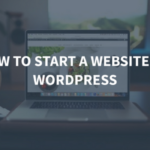Introduction
Importance of Speed Optimization: Discuss why optimizing the speed of a website is crucial, touching on factors like user experience, SEO, and overall site performance.
Impact on User Experience and SEO: Detail how a faster website enhances user satisfaction and contributes to better search engine rankings.
Overview of the Guide: Provide a brief summary of what the guide will cover in terms of speed optimization strategies.
Why Speed Matters
User Expectations and Attention Span: Explore how users expect quick load times and how a slow website can lead to a loss of audience engagement.
Search Engine Ranking Factors: Explain how search engines prioritize fast-loading sites, impacting visibility and search rankings.
Conversion Rates and Bounce Rates: Highlight the correlation between website speed, user conversions, and bounce rates.
Assessing Your Current Speed
Tools for Measuring Website Speed: Introduce various tools and metrics used to measure and evaluate the current speed of a website.
Identifying Performance Bottlenecks: Discuss common issues that can slow down a website and how to identify and address them.
Analyzing Page Load Times and Key Metrics: Break down the significance of specific metrics like time to first byte, first contentful paint, and overall page load times.
Image and File Optimization
Choosing the Right File Formats: Explain the importance of selecting the appropriate file formats for images and other media elements.
Compressing Images for Web: Discuss image compression techniques to reduce file sizes without compromising quality.
Minimizing and Combining CSS and JavaScript Files: Explore strategies for optimizing code by minimizing and combining style sheets and script files.
Server and Hosting Optimization
Selecting a Reliable Hosting Provider: Emphasize the impact of hosting on website speed and guide on choosing a hosting provider with a focus on speed.
Optimizing Server Response Time: Provide tips for improving the server’s response time to user requests.
Utilizing Content Delivery Networks (CDNs): Explain the benefits of CDNs in distributing content across multiple servers globally for faster delivery.
Caching Strategies
Understanding Browser Caching: Explain how browser caching works and how it can improve the speed of returning visitors.
Utilizing Server-Side Caching: Introduce the concept of server-side caching and its role in optimizing dynamic content.
Implementing Page Caching for Dynamic Content: Detail methods for caching dynamic content to enhance overall website performance.
WordPress-Specific Optimization
Evaluating and Optimizing Plugins: Discuss the impact of plugins on website speed and provide guidance on choosing and optimizing them.
Leveraging Browser Caching in WordPress: Offer insights into configuring browser caching specifically within a WordPress environment.
Database Optimization Techniques: Provide tips for optimizing the WordPress database to improve site speed.
Mobile Optimization
Responsive Design Best Practices: Highlight the importance of responsive design for mobile devices and provide best practices.
Accelerated Mobile Pages (AMP): Explain the concept of AMP and how it can be implemented to create fast-loading mobile pages.
Mobile-Friendly Testing Tools: Introduce tools for testing and ensuring mobile-friendliness.
Monitoring and Maintenance
Implementing Ongoing Performance Monitoring: Stress the importance of continuous monitoring and the use of tools to track website speed over time.
Regularly Updating Plugins and Themes: Emphasize the role of keeping software up-to-date for security and performance improvements.
Conducting Periodic Speed Audits: Recommend periodic speed audits to identify and address any new issues.
Conclusion
Recap of Key Speed Optimization Strategies: Summarize the main strategies covered in the guide.
Encouragement to Regularly Assess and Improve Website Speed: Urge readers to make speed optimization an ongoing process for sustained website performance.
Final Thoughts on the Impact of Speed on Overall Website Success: Conclude by reinforcing the overarching impact of website speed on user satisfaction, search rankings, and overall success.










